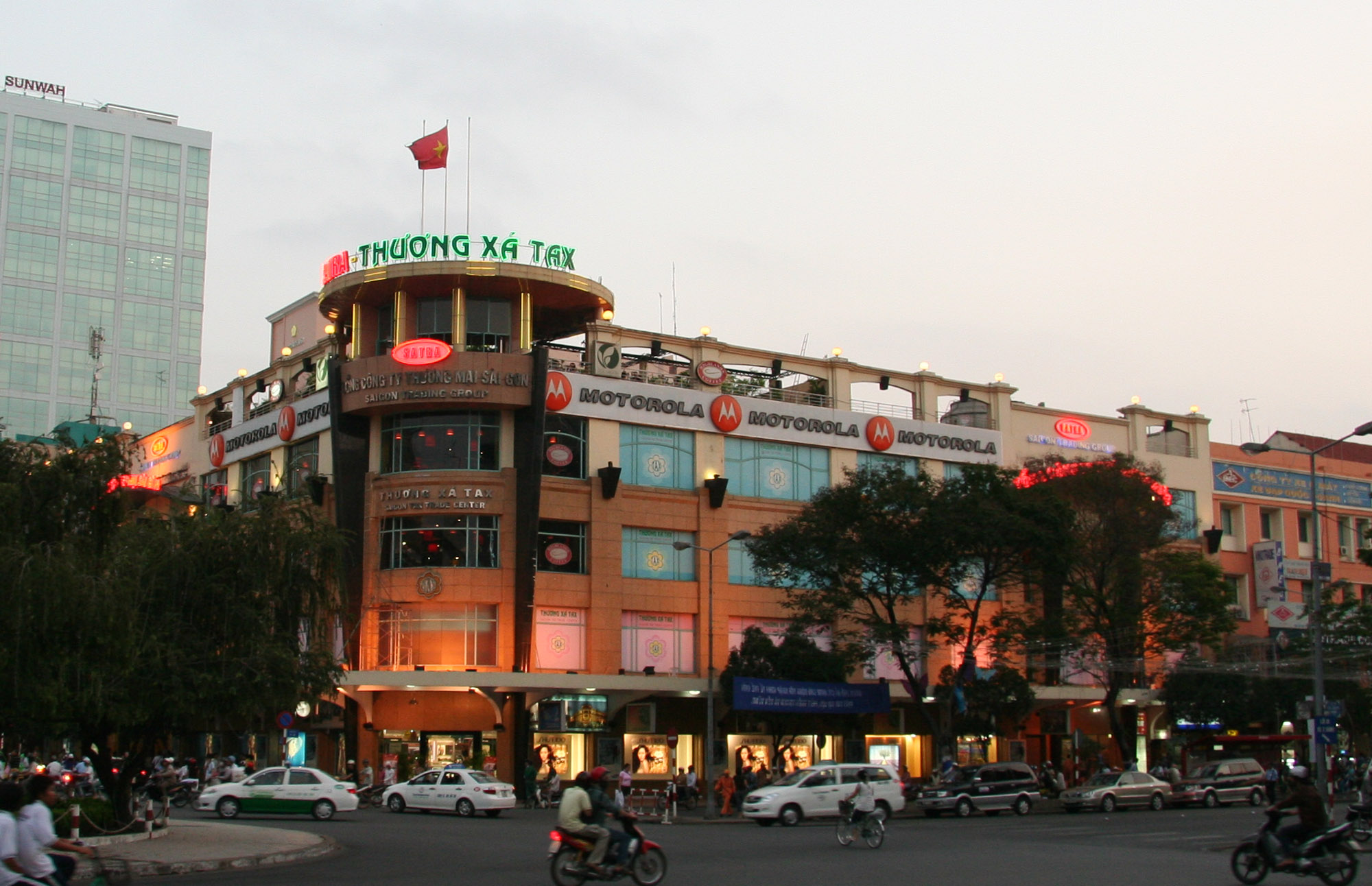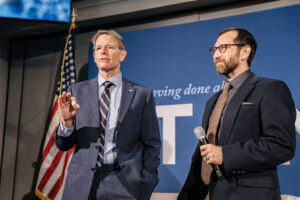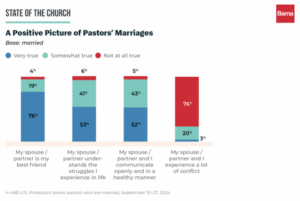
HANOI, Vietnam (BP)–Remember the infamous “Hanoi Hilton” where downed U.S. pilots were kept during the Vietnam War? It’s now a museum.
For older Americans, the building –- or at least the name -– recalls sober memories of a war that ended in 1975. The Vietnamese people call it “The American War.”
Step across the street, look up and you’ll see the modern multi-story office complex that towers over the preserved prison. The image is a pretty good picture of where Vietnam and its 83 million-plus people are today.
Fifty million Vietnamese are under the age of 30 and were not even alive during the war. They’re focused more on getting an education that will help them get jobs. And many of them would prefer to get that education in the United States, if possible.
Informed sources in Hanoi, the political capital, and Ho Chi Minh City, the economic center, say this Southeast Asian country is racing to move itself from poverty to prosperity. The war has been left for the history books.
Somewhat like China, Vietnam’s pragmatic leaders are trying to mix the old socialist, control-oriented government system with capitalist development.
Vietnam now has a stock market, just finished its first year in the World Trade Organization and is taking leadership roles in the United Nations. The economy grew by more than 8 percent last year; the rate was more than 12 percent around Ho Chi Minh City.
Newspapers are filled with economic reports. Car sales doubled between 2006 and 2007. Intel is to build its largest computer chip factory here, an $800 million investment. Nike produces one-fifth of its global supply of shoes here. Major oil companies are located here.
To be sure, Vietnam is still a developing country. Economic prosperity can seem like a distant dream in some of the country’s 64 provinces. Existing universities can accommodate only one-fifth of the country’s qualified young people. The average Vietnamese earns less than $1,000 a year.
So how does Vietnam’s government handle religion? Pragmatically, say sources familiar with the national situation.
Vietnam has made advances in religious liberty. Leaders realize this right is necessary for having a prosperous, influential country.
Local residents say religion has gotten much freer in recent years. For example, 8,000 or more people attended Christmas services in Ho Chi Minh City last year. Christmas decorations were up on some streets. While many decorations were more Disney than Christian, some nativity scenes also were displayed.
One local heard “Amazing Grace” played in a coffee shop.
Deliverymen dressed as Santa Claus rode motorbikes through city streets, delivering presents to children, a scene hard to imagine even 10 years ago. Churches, including Baptists, have grown.
Vietnam once preached atheism as the only acceptable dogma and fought Christianity and other religions -– sometimes violently.
These days atheism has dropped from the vocabulary of leaders eager to see Vietnam become a major player on the world stage. New national laws assure freedom of religion.
The registration of Grace Baptist Church in Ho Chi Minh City was not an isolated event -– about 120 church groups have been registered in the city, according to a government official who works with the process.
Southern Baptist Convention President Frank Page had talked with Vietnam’s President Nguyen Minh Triet last June at a meeting in Washington, D.C. Triet assured Page and two dozen other U.S. church leaders that Vietnam is a country where religion is free. Page reminded Vietnamese officials of that assurance during talks they had on religious liberty in Ho Chi Minh City Jan. 10-12.
But religious liberty here has a Vietnamese spin.
To the Vietnamese, freedom of religion often means people can believe what they want. But if a group or congregation forms, the government wants them to register so it will know who they are, what they represent and what they’re doing. A group that organizes but does not want to register is assumed to be up to no good. Observers say registration is more about maintaining stability than control.
What registration might entail varies by province. If registering a car or business is difficult in a province, it’s likely that registering a church also will be difficult.
Local governments gradually are learning that if they clamp down too much on religious activities, they may hear from leaders at the national level. New laws specify that membership rosters don’t need to be submitted any longer; the government requires only the names of leaders.
In one recent incident, provisional government officials broke up a Bible study being led by foreigners. The teachers were arrested and their passports taken. But when the national government heard what had happened, the teachers had their passports back within a few hours with an apology.
Government officials find it easier to work with hierarchical churches like Roman Catholics, who have a strong presence in Vietnam. They are less comfortable with evangelicals who do not fit neatly into groups.
Still, leaders told visiting Southern Baptist leaders they expect Baptists to grow and expand in the country. Further, they were told Baptists are free to form house churches as long as they register with the government. That also indicates a loosening of laws from a few years ago.
Other evangelical churches in Vietnam repeatedly have requested permission to bring in missionaries, but the government has consistently rejected those requests. Missionaries still are not welcome in Vietnam.
Southern Baptist missionaries worked here from the late 1950s until the war ended in 1975. Grace Baptist Church and other Baptist work in the country is a result of that effort.
The Southern Baptist delegation received a positive response when they asked about the return of church properties seized after the war -– a sensitive issue here. Government officials said that could happen. Other observers point out that it will likely take time -– some church properties seized by Eastern European governments during World War II are still under negotiation.
Last fall a church was warned not to bring in foreign observers for a celebration. Just a few months later, Grace Baptist Church in Ho Chi Minh City asked permission for Southern Baptist leaders to attend their celebration service.
No problem, the government replied.
“That’s a big change,” one observer said.
The progress on religious liberty has left Vietnamese Baptists optimistic about their evangelistic outreach in the country.
“We are just waiting to see what You’re going to do, Lord,” one believer prayed.
–30–
Released by the international bureau of Baptist Press in Richmond, Va.














